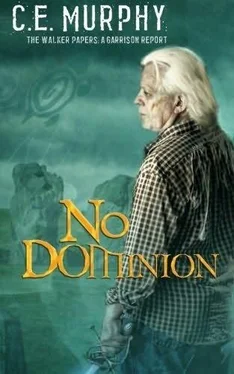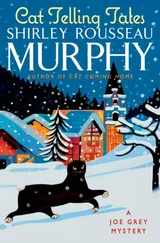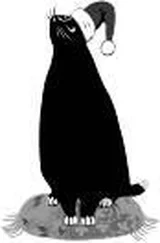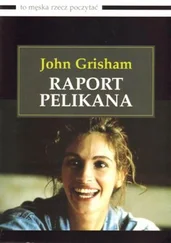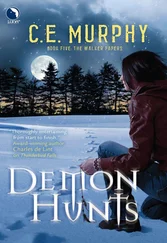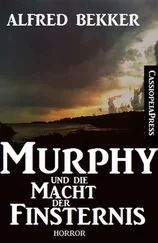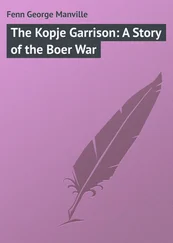Faces came alive in the light, all the discoloration and distortion of mummification fading away. They might have been men of Dublin, walking the city that very day: broad faces, fair skin and light eyes. Bad teeth and thinning hair on some, but handsome cleanliness on others. Recognition and gratitude gleamed in those faces as clearly as they would on any modern man, and together they began to speak. They were thousands of years of age, and couldn’t speak a word she knew. But then, neither could Maeve of Connacht, and that hadn’t stopped them from speaking Irish and English both to one another. Cat bowed her head and listened, and the words came clear:
We died to feed an ancient power, bleak and cruel. Our spirits were meant for him, the Devourer, the Master, the End of All Time, and yet the bog took our souls as well as our skins. We were bound to this earth in a way that spirits are not meant to be, never to leave it without someone to grant us release.
Men of learning released our bodies from the soil: a brightness in our dark destiny. We have cried here for so little time compared to the years we lay beneath the bog, and now you have come to free our broken hearts. We are free, and in our freedom we may choose. We have been granted release, but we will not yet leave.
Call to us, Caitríona O’Reilly, Irish Mage, in your fateful hour, and we will come.
The light, the faces, the magic, faded as quickly as it had come. Cat’s knees went wobbly and she leaned her weight on the spear, suddenly knackered. The museum visitors were full of shouts and gasps and questions, their voices echoing off the walls like a band of hooligans determined to make all the noise in the world. She felt her circles unraveling beneath their feet, swift sparks of power zipping toward her as the unwinding touched them, as if each touch lent her half a breath of strength. Her shields, the daft Star Trek shields that Joanne had taught her to protect herself with, felt stronger as the last circle came undone, until she was herself again among the bog men and the tourists.
The mummies looked no different than before, but their cries were silenced. Their pain was gone, the suffering ended, though a sense of their presence remained. There to come to her when she called at her fateful hour, which sounded dangerous enough indeed.
A yowl broke through the thought and the boy she’d seen before appeared, a splinter embedded under his fingernail. “I wasn’t supposed to touch it!” he wailed. “Mommy’s going to k-ki- kiiiillll me!”
Caitríona laughed and crouched. “Let’s see it, lad. Ootch, that looks like it hurts. It’s American you are?”
“Y-ye-yeees. How’d you k-k-knoooow?”
“Ah, you’re no Irishman, not with that fine Yankee accent. Here, now, let’s see what I can do. I’ve a plaster in my bag, if you want it.”
Tears spilled over the lad’s cheeks, but only because he crushed his eyes into an uncertain squint. “A plaster?”
“A Band-Aid, you’d call it. Here now.” Cat leaned the spear against a wall and pushed around in her purse until she found the plaster. She held it up, then grabbed his fingertip, squeezing it hard. The boy yelped again as his fingertip turned dark red, so startled he hardly even noticed when she yanked the splinter out. Blood welled up and his eyes got rounder. She nodded and wrapped the plaster around his finger, then gave it a kiss. “There, my lad, all fixed.” All she needed was the spell that Auntie Sheila had known, the one to heal the hurt. Then realization struck her and she gave his fingertip a last squeeze before setting the magic she’d known all her life: “Now it’s a magic plaster, so it is, my boy. Don’t take it off for three days, and the wound will be healed when you do.”
His eyes widened and he nodded eagerly, then ran away again, crowing to his ma about the plaster. That was it, then, she thought: this was the life of a mage. Band-Aids and bog-men.
It sounded like a fine life indeed.
“Twenty Years After” takes place twenty years after the Walker Papers end, and contains nothing the author considers to be significantly spoileriffic.
The coolest woman I’d ever known taught me that magic was real.
I don’t think she meant to. No, I’m sure she didn’t mean to, but she did it anyway.
I was six when she healed me of sickness brought on by dehydration. My Mom remembers it, but she thinks it was just a lucky chance that a police officer happened by with water and a soothing touch. Me, I remember the cool rush of strength that poured in me. It was like a drink of water in the desert—and I hiked the Mojave last autumn, so I have some idea of what that really feels like—except it didn’t just soothe my throat or wet my mouth. It did line my esophagus the way a cold drink does, all the way to my belly, where it spread out nice and cool, but cold water stops there. You don’t feel it wash through the rest of you, still cool and refreshing as it runs through your blood. I felt the magic through my whole body, tingling and bright and comforting. When I’m having a bad day I can still call that feeling up, the way it made my fingertips and toes buzz, and even now, twenty years after, it makes me feel better.
Then on my seventh birthday, Joanne Walker and I went down a rabbit hole in a police station and played Tar Baby with Brer Rabbit. I told her that day I was going to grow up just like her, a police officer and full of magic. Things didn’t work out quite how I planned. I did four years in the military instead of becoming a cop, and it took twenty years of trying and hoping and practicing before I accepted the truth: I’m not magic.
But I’m smart.
The Yakima River started up in Cascades, fed by Keechelus Lake. It was a major tributary for southeastern Washington, providing irrigation water for the orchards, grapes and crop fields, as well as being a year-round fishing and kayaking river. The valley it fed had range lands that were used by the military for training grounds. I’d spent a few months there during my time in the Army, so it was familiar territory, but more important, it was just about in my back yard. But then, a lot of the Pacific Northwest was: I ranged down to Salem and as far north as Whistler. I’d gone out to Coeur d’Alene a few times, too, but anything big enough to draw me farther away was in Joanne’s weight class, not mine.
I headed down through Snoqualmie Pass on the scent of a rumor. That was how most things worth hunting came my way: rumors or small independent news sources. The major media had nearly collapsed under the weight of microreporting, but they’d never carried news stories about this kind of thing anyway. Boiling lakes only made the news if a scientist could explain why it was boiling. When there was no obvious cause, the news outlets shut up and pretended it wasn’t happening. Most people were like that too, which I’d never even wanted to understand. As far as I was concerned, a world with active magic in it was a far better place to live than one that had none. No doubt Joanne had had a significant effect on me, but she’d had an effect on the whole Northwest, too. There was flat-out more magic now than there’d been when I was a kid, and people tried harder than ever not to see it. I didn’t get it.
Keechelus Lake, held in place by Keechelus Dam, was a simmering froth. Steam billowed skyward, killing trees and sending birds to other nesting sites. No insects droned in the air and there wasn’t a hint of sulfur scent or anything else that might account for boiling lakes. There was a faint scent of boiled fish. Just as well they’d dammed up Keechelus, not Kachess, one of the other lakes that fed the Yakima. Keechelus meant few fish in the indigenous Yakama language. That was one of a million bits of almost-useless information I’d picked up while studying anthropology and world mythologies after I got out of the military. Almost useless, but not entirely. Not if you’d chosen to hunt monsters for a living. Well, not exactly a living: it wasn’t like anybody paid me to keep the world safe from things that went bump. I was a grad student in Spokane, halfway done with a degree in world mythologies. I taught two classes a semester, kept my ear to the ground for monster reports, and worked on my dissertation when I had no other option.
Читать дальше
